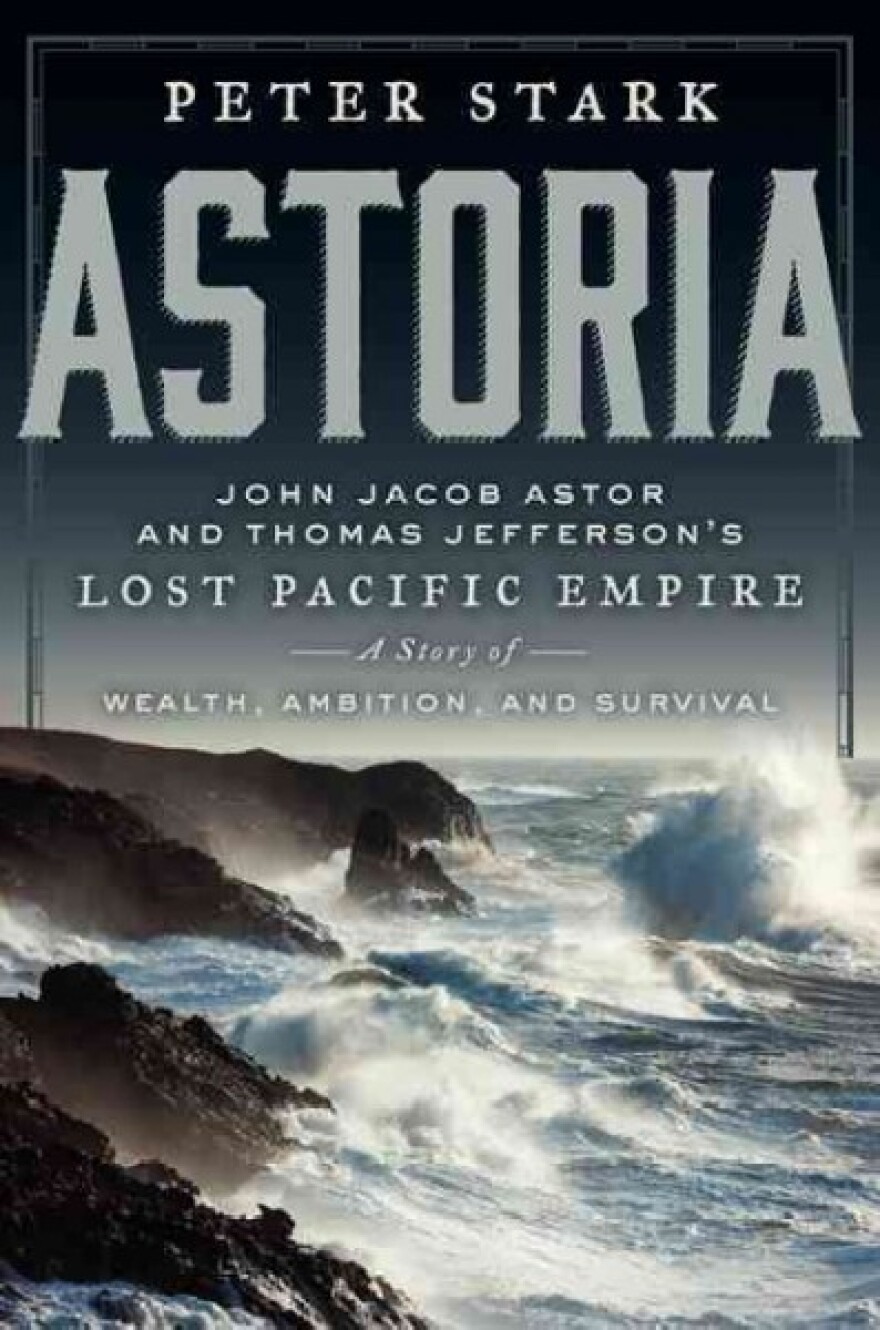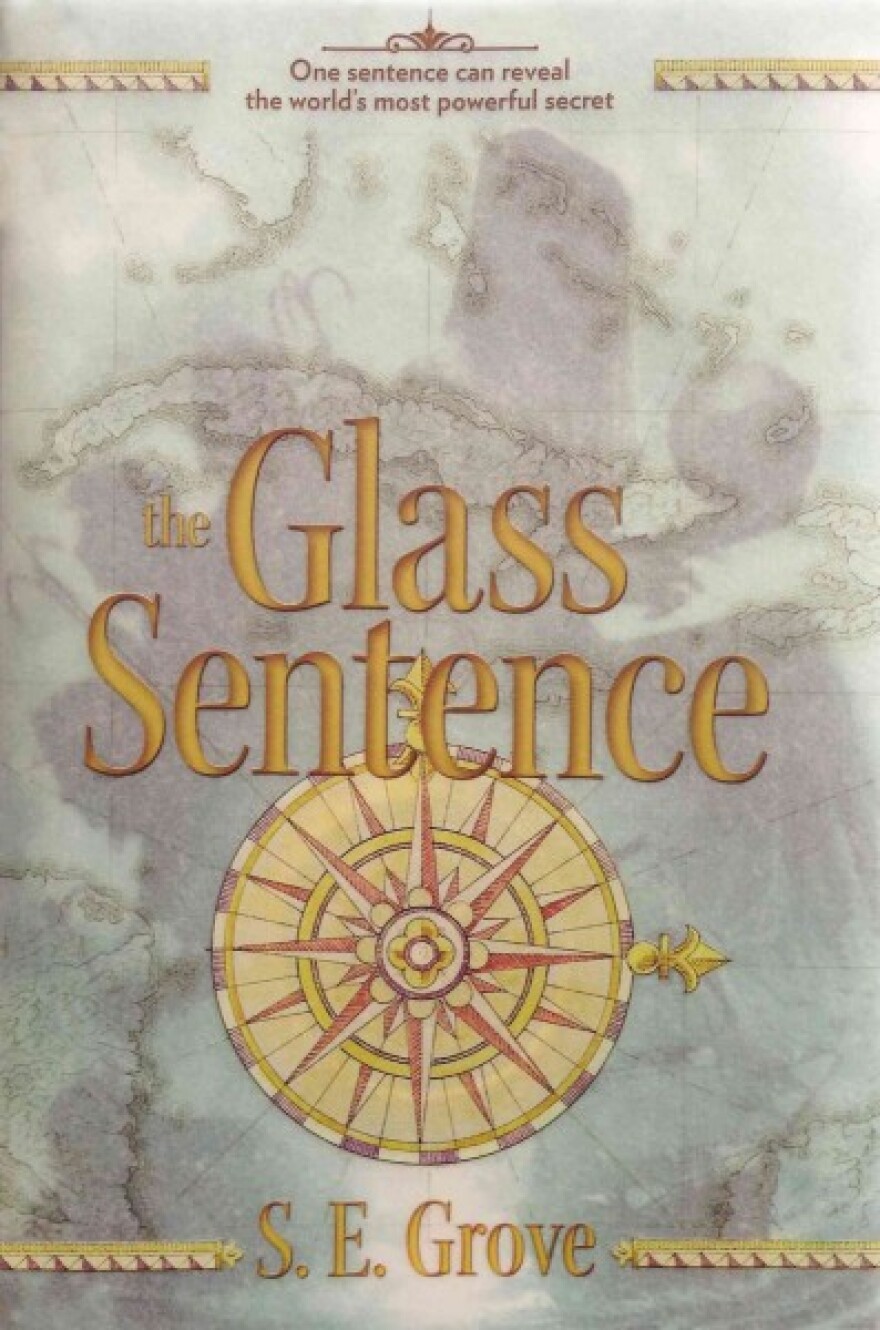If you like your summer reading to take you beyond the beaten path, librarian Nancy Pearl is here to help. NPR's go-to books guru joins us once again to share "under the radar" reads — books she thinks deserve more attention than they've been getting. Pearl talks with NPR's Steve Inskeep about some of the titles she picked out for the summer reading season — several of which will make you reconsider the way you think about maps.
Copyright 2024 NPR. To see more, visit https://www.npr.org.
Librarian Nancy Pearl Puts Under The Radar Reads On The Map
Understories

by Tim Horvath
"This one, I think, was probably my favorite collection of short stories in recent memory. ... Tim Horvath writes these stories that are firmly grounded in realism. They're set in a world that we know we're familiar with — it's our world. But then ... he moves into off-kilter. ... I don't call it magical realism — I call it elastic realism. He stretches that definition of realism into places that we might not think it would go. So there are two stories in here that I particularly, absolutely loved. ...
"One is called 'The Discipline of Shadows.' The Department of Umbrology studies shadows from all different points of views. ... This department that Tim Horvath describes is very similar to all the academic departments with its in-fighting. ... The joy of this short story is the sense of this terrific college department of umbrology and how he compares it to the departments of umbrology in various other academic institutions. ... And you end up believing there must be a department of umbrology somewhere. It sounds too good not to exist.
" 'The Gendarmes' ... is about a young man that hears noise on the roof of his apartment, and he goes up there and he finds a group of young kids and asks them what they're doing, and they say, well, they're conducting an experiment to try to teach animals to grasp the concept of extinction. And then he says — and this is a priceless sentence — 'We're tired of having to bail out endangered species. It's high-time they learned individual responsibility.' ... Now how could you not just embrace a book and a writer who can come up with a sentence like that?"
Astoria

by Peter Stark
"Thomas Jefferson had this geopolitical dream of building another country really on the West Coast of America ... way past the Louisiana purchase, and then annexing it/joining it to the existing United States. ... And this fit in very well with what Astor wanted to do, which was basically the same thing. But [Astor] wanted to build on the West Coast an emporium where all of the furs ... and whatever else his trappers and his explorers and his employees found could be sent. ... He envisioned really a global trading business. ...
"So John Jacob Astor was sitting in his very comfortable house in New York, and sent out 140 men and one woman in two different modes of transportation. There was the overland group, who were going to go by canoe with the French Canadian voyagers. ... And then there were the people who were going to go by sea around Cape Horn. ...
"And these two expeditions ... they were not quite suicide missions, but they were far more dangerous than anybody expected that they would be. Out of the 140 people who set out, for a variety of reasons, 61 of them died in various ways. ... It's a period of history that a lot of people are unfamiliar with, and ... more importantly for my perspective, it's really good reading."
The Selected Works of T. S. Spivet

by Reif Larsen
"This is a fabulous, fabulous novel. ... Set in contemporary times, it's the story of a 12-year-old boy, T.S. Spivet (Tecumseh Sparrow Spivet), who is a cartographer and he maps everything. ... When you read this book, your definition, your thinking about what a map is, is just totally expanding because of the kinds of things T.S. maps. So he maps the dinner table conversation of his family. He maps almost anything that you can think of — sound quality as it travels through the Montana countryside where he and his mother and father and older sister live. ...
"But T.S. Spivet gets a call one day ... that he has won a very prestigious award, the Baird award from the Smithsonian Institution for his drawings, his maps, and he is invited to come to Washington to speak. Now, they don't know that he's only 12 years old ... and he gets on a train, and much of the book is his adventures on the train as he travels across the country mapping everything. ...
"Here's a quote that I found that just struck me, where T.S. says, 'Adults were pack rats of old, useless emotions.' Isn't that great? When I go back and think about this book, this is a book about fathers and sons, and this is a book about sons trying not to disappoint their fathers. ... You could reread this book again and again and again.
Into Thick Air

by Jim Malusa
"In Into Thick Air, botanist Jim Malusa describes riding his trusty bicycle to the lowest spots of all six continents — Lake Eyre (Australia), the Dead Sea (Asia), the Caspian Sea (Europe), Salina Grande (South America), Lake Assal (Africa) and Death Valley, near his home in Arizona. He overcomes everything from extreme weather and extreme insects to the very real threat of land mines if he strays off the road in Africa. Although these were solo trips, Malusa would make a great travel companion, as he has an enviable knack for meeting interesting people, hearing fascinating tales and seeing unusual sights. (For example, there's an old state cafeteria in Volgograd, he tells us, 'featuring perhaps the world's only aluminum bas-relief of dumplings.') Malusa's philosophy of travel is nicely summed up in one sentence: 'Travel without surprises was merely an agenda.'"
Death of a Unicorn

by Peter Dickinson
"Death of a Unicorn has nothing to do with unicorns or fantasies. ... This is a mystery by Peter Dickinson. (Small Beer Press, a small publishing company in Massachusetts, is reprinting ... Peter Dickinson's books, which is a wonderful, wonderful gift to mystery readers who are yearning for that kind of old-fashioned British mystery where it doesn't move quickly, you get engrossed in the time period.) ...
"The thing about Peter Dickinson is that his books, one from the other, are totally different. ... And this is a novel, a mystery, where the mystery doesn't really happen. The event that is mysterious, the death — if you will — doesn't really happen until probably two-thirds of the way through the book. And it's written from the point of view of a young upper-class ... woman in England and her relationship with the [financier] of a magazine very much like the New Yorker. ...
"I think that this is one of those books that I hope will ... introduce people to Peter Dickinson and then they'll go and pick up all the rest of his books. ... But I have to stress these are not for people who want fast-moving thrillers. These are not mysteries in the style of American private-eye stories. These are really character studies and studies of society at a particular place in a particular time."
The Glass Sentence

by S. E. Grove
"This is the first in a trilogy ... called The Mapmakers Trilogy. ... This is a fantasy novel for teens and maybe for readers 10 and up (although I think a 10-year-old would be hard-pressed to really get through it, because it's a long book and it unfolds rather slowly). But it's filled with these fabulous, interesting ideas about the nature of maps, about the nature of time.
"The setup of the book is that there was at one time in our past a disruption — it's called 'The Great Disruption.' And what happened was the continents separated and each of the continents is now in a different age. So some of the continents are in the future, some of the continents are in the past. And the main character is a young woman named Sophia Tims who lives with her uncle, who is a "cartologer" (she doesn't call them a cartographer) ... and her uncle has been her guardian, since her parents have gone on an exploratory journey many years ago when she was a very young child and have not returned and are presumably lost. ...
"The Glass Sentence is so wonderful. It has pirates, it has a chocolate-maker, it has a very brave girl, it has an evil woman who might not really be as evil as she seems. This author's imagination is just amazing."



